Unconscious Biases Affecting Workplace Interactions
Knowing and addressing Unintentional Biases
A bias is an assumption or a pre-judgment about someone that does not reflect the person's merits and abilities. Biases are a change in one’s normal interaction habits due to another person’s distinguishing traits. Biases are not always bad, as they can happen from good intentions. Unconscious biases at the workplace refer to subtle or unintentional inclinations or resentments colleagues or employers have towards colleagues. So, unconscious biases are those biases we don't even know we have. These biases are generally on the basis of characteristics such as race, gender, age, disability, religion, and more. They influence interactions at the workplace, and are determinant on the overall productivity of a company. Knowing and addressing one’s unconscious biases is crucial to create and uphold healthy work relationships, inclusivity and equality. Below, we first present a list of 10 common unconscious biases workers and, sometimes, recruiters have at the workplace. Then, we present a few strategies either party can use to address these unconscious at the workplace for a good working environment.
What you're about to read:
Introduction
Ten Common Unconscious Biases Affecting Workplace Interactions
- Race, culture and accent biases
- Sexual orientation biases
- Physique biases
- Gender biases
- Disability biases
- Age and experience biases
- Affinity biases
- Religion biases
- Family size biases
- Appearance and look biases
Overcoming Unconscious Biases Affecting Workplace Interactions
Conclusion
Ten Common Unconscious Biases Affecting Workplace Interactions
1. Race, culture and accent biases
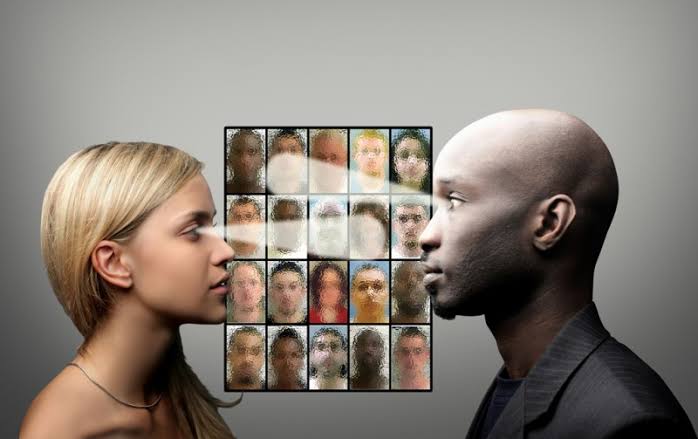
These biases may not be too obvious, so I invite you to think of that one time you lightheartedly made what you considered a harmless joke about your co-workers’ way of talking, their dressing or their accent? Consciously, you and your workers are fine, but you may unconsciously resent a co-worker because of their culture or the way they speak.
2. Sexual Orientation Bias
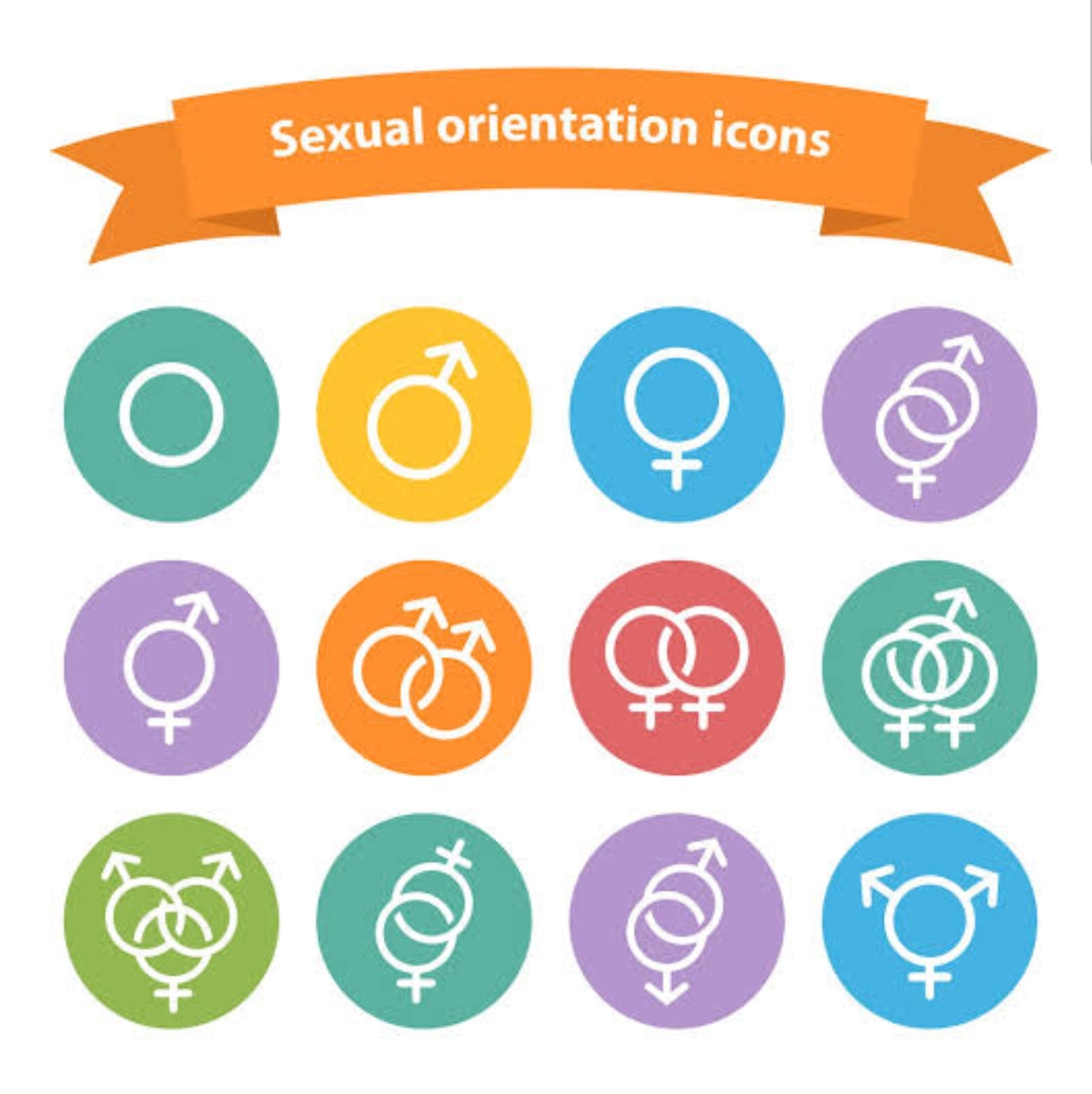
For most people, especially those from the Northern hemisphere of the globe, there is only one sexual orientation. A man engages in sexual relationships only with women. However, with all the LGBQT+ activism around the world, same-sex lovers have been more open at the workplace about their sexual orientation. Are you working with a gay colleague? a tranny? a lesbian? What do you deeply think about them? Without the laws and activism around the matter, would you still think so of them?
3. Body Image Bias

How many times have we mocked our fat friends and co-workers? We’ve done that so much that the word “fat” has become a sensitive word like “Black”. What do you think about your fat colleagues? Your short colleagues? Are they lazy and undisciplined? Are they troublesome and overly sensitive? If you think so of them, you have an unconscious bias towards short and fat people.
4. Gender Bias

The issue of gender inclusion at the workplace is not one of today. As a male worker, do you prefer working with men rather than with women? As a teacher, what is your opinion about a male colleague working at the nursery of a school? What do you think about a woman working as an electricity agent? If these scenarios are “unacceptable” to you, you clearly have an unconscious gender bias.
5. Disability Bias
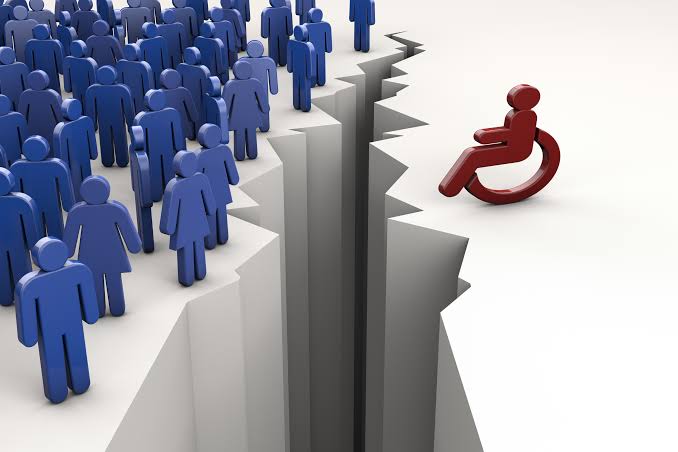
I think this is self-explanatory. Do you always find yourself assisting your disabled colleagues? Even with tasks they would normally want to do themselves? Your intentions are obviously good, but they are biased. The more obvious people’s disabilities are, the more biased others become when dealing with them.
6. Age and Experience Bias
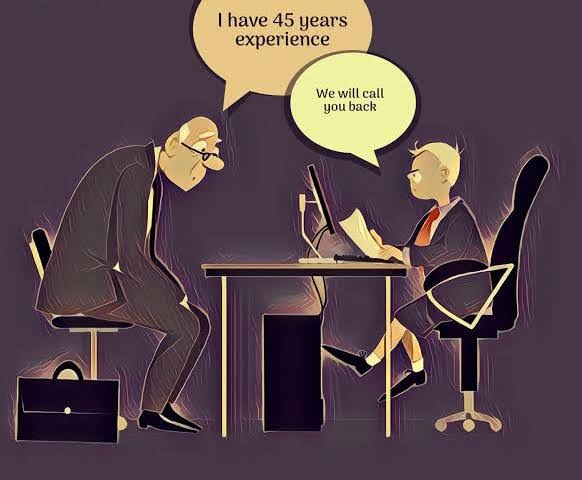
Ageism is stereotyping and/or discriminating against individuals or groups on the basis of their age. How do you feel when assigned to a task with a younger colleague? Aged people tend to assume that young people are inexperienced, while young people tend to believe that senior people are not tech-savvy, cannot even send an email without assistance. It is like a psyche clash between workers of both generations. Ageism is real
7. Affinity Bias
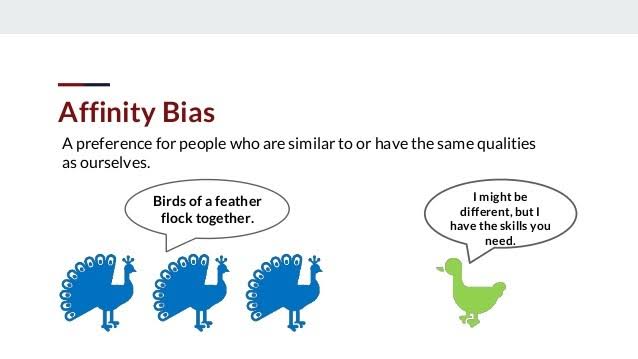
How do you feel when you meet a former classmate or schoolmate at your workplace? When people have a common history, they tend to portray a certain level of bias towards each other based on their previous relationship. Imagine starting to work with someone who attends the church were you worship? Would you approach the person with the same level of caution as you approach(ed) your other colleagues?
8. Religion Bias
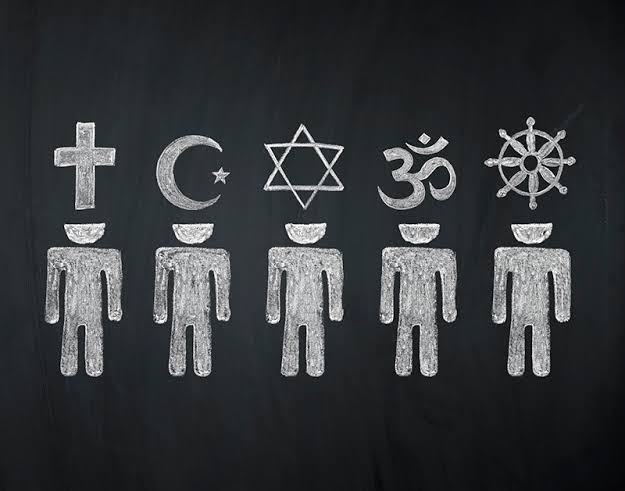
Biases related to religion occur when assumptions or pre-judgments are made upon a person's membership in a faith group, rather than on their individual merits. What is your opinions about your co-workers who do not go to church? Who do not have an active Christian life? As a Muslim, what do you think of Christian colleagues? As a Christian, what do you think of Muslim co-workers? What do you think of people who attend ministry churches? Or people whose denominations are different from yours?
9. Family size bias

Do you think your colleague who has six kids in this difficult economy is not serious with his or her life? How does your colleague even cope with a family of six while you cannot even think of having your second child? Thinking about your colleagues’ family size and having an opinion about it is an unconscious bias.
10. Appearance and look bias
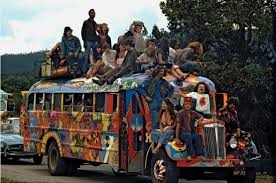
Appearance bias is phenomenon when a person is discriminated against on the basis of physical attributes possessed by him or her do you think about your colleagues who have tattoos? About your female colleagues who have piercings on areas other than their ears? What is your impression about your colleagues’ coloured hairstyle? About their tight-fitting dressing? If you can go beyond people’s physical appearance at work, you are unconsciously labeling them as unprofessional.
Overcoming Unconscious Biases Affecting Workplace Interactions
1. Enacting/Adhering to Company Policies
Rules, not emotions should govern the company's workplace interactions. Policies and regulations applicable to everyone (without any distinction of status, age, etc.) should be put in place. These policies should be inclusive and everyone's point of view should be heard.
2. Raise Awareness About Unconscious Biases
As stated above, unconscious biases are unintentional. Raising awareness about them is a two-step process: educating colleagues about these biases, and cautiously and courteously informing colleagues about these biases when they portray them. If these biases persistently lurk around your workplace, then, you should consider reporting them to management. So, basically, educate colleagues, monitor behaviour and report biases.
3. Make Considered Decisions
Look before you leap, and think before you act or speak. Most unconscious biases exist because employees and recruiters do not reflect on their behaviours frequently as they consider them as "normal". Always ask yourself these questions: "why do I think Aishatou, the female applicant isn't fit for this position?", and "why don't I want to work with Enanga on this project?".
4. Leave Your Comfort Zone
It is natural to want to work with people we perceive to have traits we possess ourselves. Working with the same colleagues, at the same department for a long time has a considerable toll on our perceptions. Broaden your thought processes by working with new people. I remember having the same French teacher for my first three years in secondary school. During my fourth year, I had a new French language teacher. And during the first month of resumption, I was called to the office twice because I was mentally ignoring the new teacher and not doing class exercises. But we later became friends (not the typical good-morning-sir-good-morning-how-are-you teacher-student friendship) as he taught me through my four-year stay in that school before I left for the university.
5. Continued Learning
Some companies make it mandatory for employees to complete courses on communication, workplace ethics and conduct, cultural intelligence (CQ) and workplace inclusion successfully. As an employee, if your employer doesn't over this perquisite, empower yourself by learning how to work with people across your boundaries. Enroll in online classes or undertake a university degree in Business Communication where you will learn the intricacies of formal, verbal and non-verbal communications.
Conclusion
Unconscious biases can mar employees' overall interactions and productivity at work. Knowing and addressing these biases is critical for a conducive and inclusive workplace environment. We have reviewed some unconscious biases such as race, age, gender and affinity, and have equally reviewed some strategies to address unconscious biases such as educating about them, reporting them, and working with multicultural people.
Before leaving, take the Implicit Association test to evaluate your level of unconscious bias.

